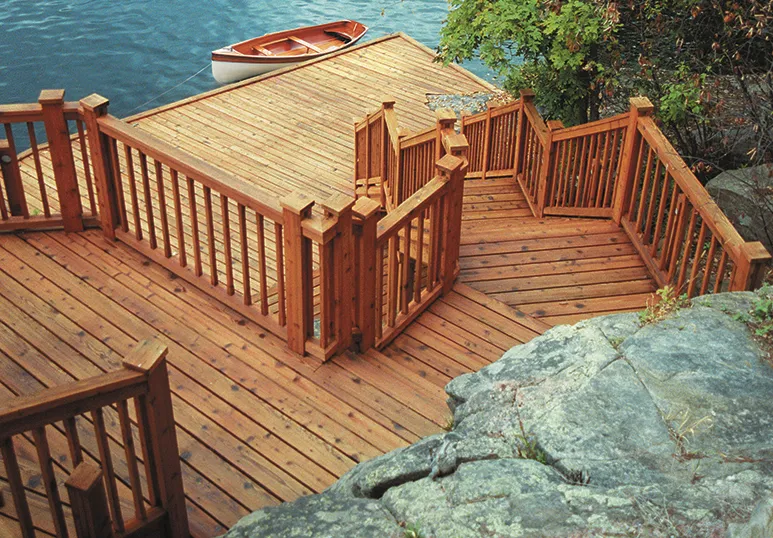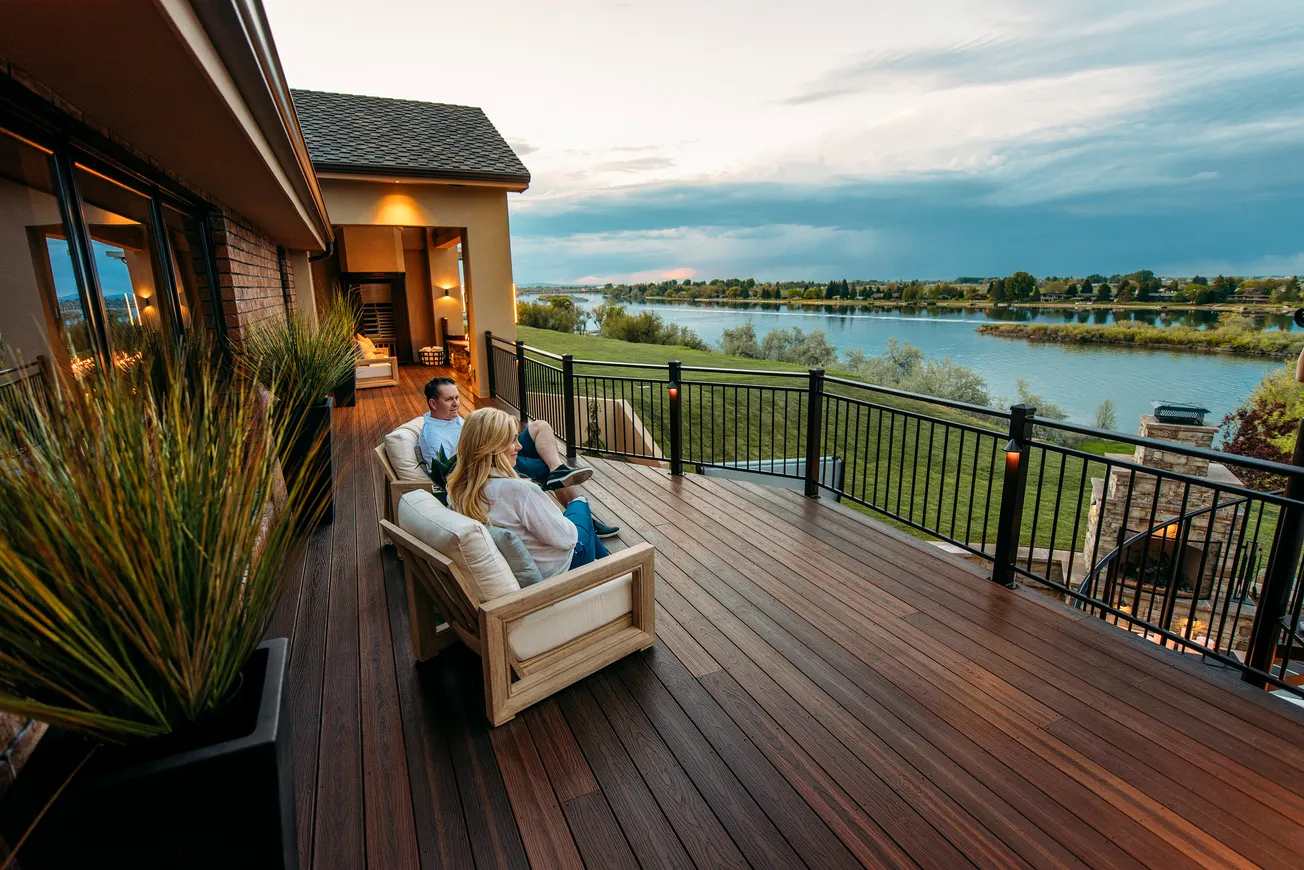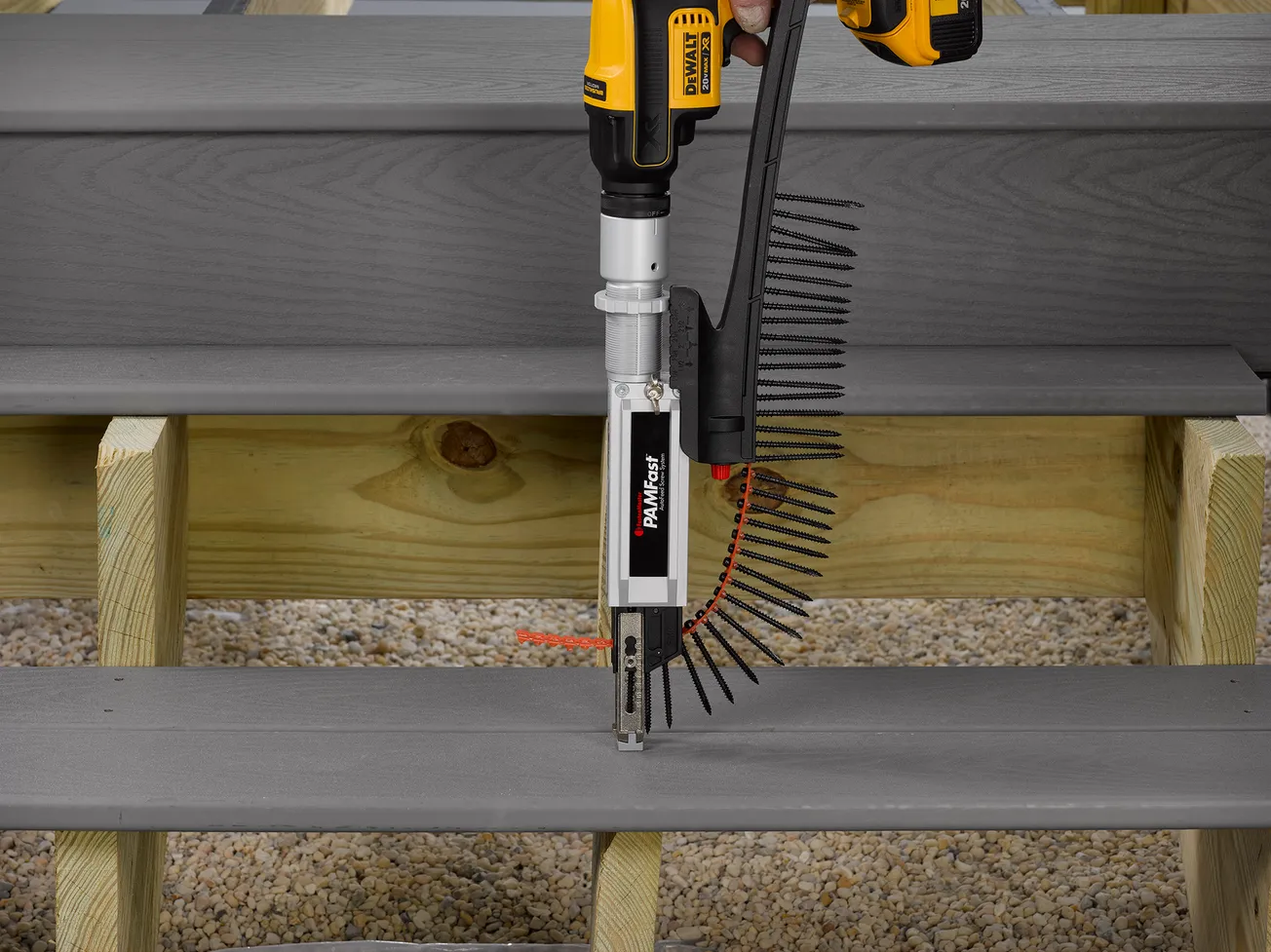Table of Contents
The push to more eco-friendly behavior is changing how we live. It’s affecting our choices in small, incidental actions like using re-fillable coffee cups and recycling plastic bags, to larger life milestones such as the kind of cars we drive or the materials our homes are made of.
Consumers are now expecting businesses to do their part, as well. In a recent Nielsen study, 81% of respondents strongly agreed that companies should take responsibility for improving the environment. The world is demanding action on climate change, and that action is now being seen in what motivates consumers to choose one product over another.
In this respect, natural, climate-friendly and sustainable products like wood may soon have the upper hand over composite products at the retail level, particularly as awareness of climate change grows. For the past decade or so, composite materials have been a growing threat to wood decking and siding products, but little has been said about the environmental impact these products have.
So it’s no coincidence organizations like the Softwood Lumber Board are promoting the environmental benefits of wood as a structural material, and the Western Red Cedar Lumber Association (WRCLA) is shifting its message strategy to emphasize cedar’s green and sustainable aspects.
As noted in “Don’t Just Sell the Cedar, Sell the Value” (BPD, Sept. 2019, p. 14), WRCLA recommends that its retail members promote the unique properties and value of cedar to increase sales and grow its competitive advantage. Of specific importance among these unique properties is the species’ role as a climate-change mitigator, which the WRCLA will promote to address growing consumer concerns over the environment.
Although recent consumer studies conducted by the WRCLA show that price and appearance are still the most relevant factors when it comes to making a purchase decision, choosing products that have a climate-friendly impact is on the rise. Any cedar product under the Real Cedar brand can only come from sustainably and responsibly managed forests, meaning it is a completely renewable resource. Lifecycle Assessments (LCAs) also show that natural wood products like western red cedar have the lowest impact on the environment to manufacture, versus building materials like concrete, vinyl or steel, which are very emission intensive.
“We’re definitely ahead of the curve in terms of climate-change messaging,” said Brad Kirkbride, managing director for WRCLA. “Price, appearance and previous experience are still the most common reasons for choosing a decking or siding material, but as climate change continues to grow as a global issue, we’re seeing more and more choices being made that take climate impact into consideration.”
Here are several reasons Real Cedar has the environmental advantage over composite products:
First and foremost, Real Cedar is a sustainably managed resource, and wood products like cedar are the only major building material that are completely renewable. For every tree harvested there are at least three replanted. What’s more, in British Columbia, where the majority of coastal and interior WRC comes from, there is now more forested land than there was a hundred years ago, and replanting has been so diligent that the total forest land base in North American has grown 20% since 1970.
Natural wood products like cedar play a vital role in reversing climate change. As young trees grow they remove carbon (greenhouse gas emissions) from the air, store it, and release oxygen. As trees mature, they no longer capture carbon. When the tree dies, or is consumed by wildfire or infestation, the carbon goes back into the environment. When the mature tree is harvested, however, the carbon remains stored, and new trees are grown to replace the cycle. Using wood products keeps this cycle going.
Customers who choose western red cedar are reducing their material consumption versus other building materials. Wood is extremely durable and long lasting, and can be reclaimed from other projects and reused. Very few materials can be reused like this from decommissioned structures, whereas composite materials go straight to landfill.
Additionally, retailers who want to help customers choose cedar can also point out that the majority of us don’t have the whole picture on natural versus composite products’ environmental impact. Composite companies like to point out they use recycled content, which creates the appearance of being green. However, they don’t address the fact that enormous amounts of energy are required to manufacture these products and greenhouse gases are emitted during production, which have a deleterious effect on global warming.
Builders who are leaning to composites over cedar may rethink their choice as well when they consider that building site trim ends and breakage from composite products end up in our landfills. In addition, builders report that composite dust containing plastic or silica create jobsite hazards. Whereas cedar sawdust is biodegradable, plastic is not, and it ends up back in the ecosystem and in our waters; something the planet could well do without.
There is no question the retail market for products like decking, siding and finishing boards is crowded and highly competitive, and manufacturers and retailers alike are looking for any and every advantage they can to stand out in front of consumers. With such alarming disasters like the Australian wildfires signaling the severity and immediacy of the climate change crisis, the necessity to make choices that consider their environmental impact is becoming exponentially more important. It will be interesting to see how this translates into consumer choice at the retail level.









